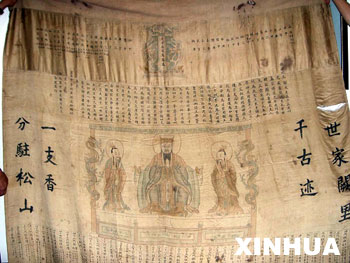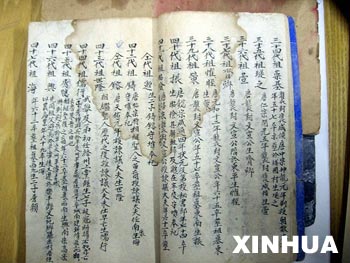She said, "Society progresses, so the family genealogies should change as well. The entry of women's names affirms the equality between the man and woman. What's more, because of family planning policy, most families can only have one child. If female descendants were excluded, it would be a big loss for the Confucius family."
After becoming a CGCC organizer, she spent three years looking for clansmen in Jiangsu Province, adding around 80,000 names to the genealogy.
71-year-old Kong Xiangxian who lives in Xuanwei City in Yunnan Province, is another unlikely entry in the genealogy. As a Muslim he would have been excluded from previous editions.
From 2000 to 2002, he visited many elderly people, researched old village inscriptions and uncovered the interesting history of the area's Islamic descendants of Confucius.
In 1715 in order to cement an alliance with the Hui ethnic group, many Confucius descendants married Hui people and converted to Islam. The materials Kong Xiangxian collected are now stored in the Xuanwei city archives.
According to CGCC, other descendants of Confucius married into the Miao, Shui, Hani, Jingpo, Tu, Dongxiang, Tibetan, Manchu, Bao'an and Tujia ethnic groups. Still others moved to Korea, the USA, Singapore and other foreign countries and regions.
Kong Xiangxian said the inclusion of non-Han descendants showed that after 2,500 years of social progress, the Confucius family had become tolerant and inclusive.

|
|
This genealogy, of a branch of the Confucius family that was “l(fā)ost” for a thousand years, was found by genealogy researchers in Xiyang, Shanxi Province.
|

|
|
This hand-written genealogy, of a branch of the Confucius family that was “l(fā)ost” for a thousand years, was found by genealogy researchers in Xiyang, Shanxi Province.
|